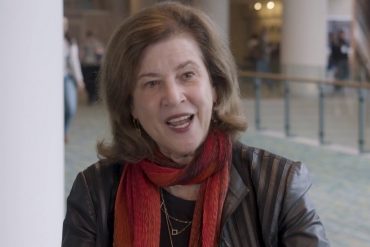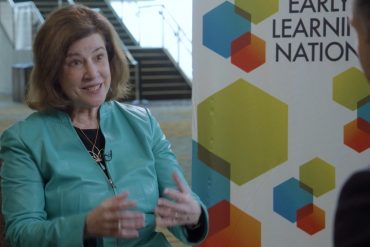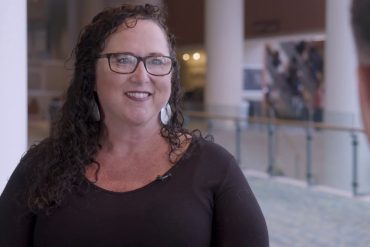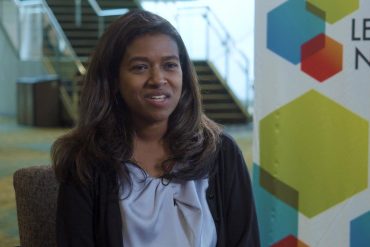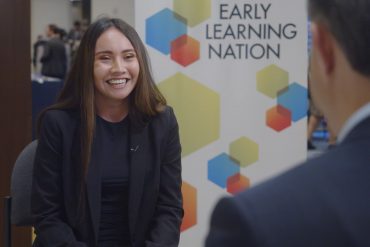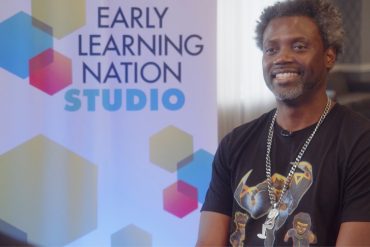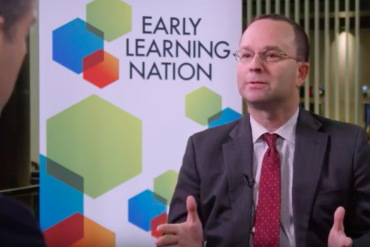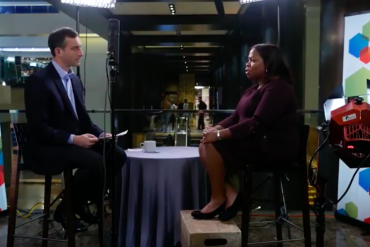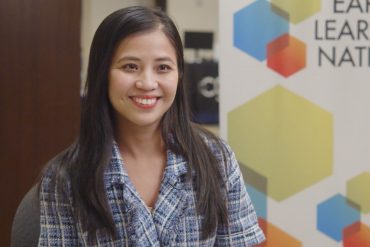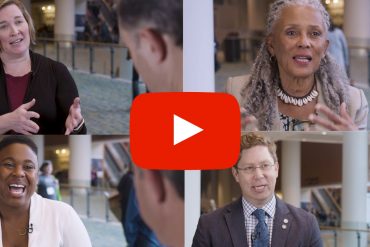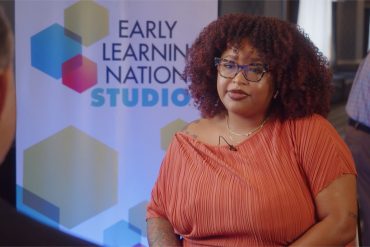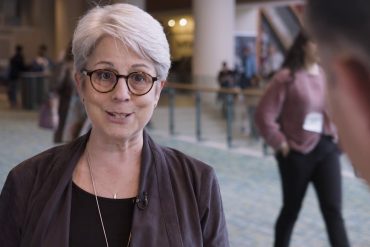We are all more than our most challenging moments. As Ellen Galinsky, Bezos Family Foundation Chief Science Officer and Founder/Executive Director of Mind in the Making, explains, a focus on “trauma informed care” in early learning is shifting to “asset informed care.” And that process starts with looking at children in terms of their strengths.
From “helicoptering” to “snowplowing,” parents are often tempted to simply remove obstacles from children’s way, preventing them from learning how to deal with challenges themselves. Instead, as Ellen Galinsky, Bezos Family Foundation Chief Science Officer and Founder/Executive Director of Mind in the Making, explains, the better approach is to build “Autonomy Support” – helping children gain the independence skills they’ll need to become successful adults. Filmed for Early Learning Nation’s Mobile Studio at the Society for Research in Child Development’s biennial meeting in Baltimore, MD, on March 22, 2019. #SRCD19
As early learning science continues to deliver new insights around how children learn, the imperative next step becomes putting those learnings into the hands of people who need it most: Educators and parents. Senior Manager Erin Ramsey explains how Mind in the Making does that all across America.
When University of Maryland Associate Professor Geetha Ramani and her colleagues visit early learning classrooms, they’re known as the “game people.” Ramani’s research shows not only the importance of teaching math skills, but also the effectiveness of what might seem like an obvious tactic: Make it fun.
As an NLC Youth Representative and a member of the Brighton (CO) Youth Commission, Giana Rocha partners with adult leaders to help youth access the tools they need to be involved and make change. One area for impact: Helping peers with mental health issues know that support is always there.
Hotep is an artist and educator, but most importantly, he’s a father to two young “cubs.” Hotep has created a family friendly anime series, centered around a father and his two children, representing characters that look like them and instilling some of the important qualities for positive human development: Confidence, self-esteem and belief in oneself.
Many business leaders realize: If you want to secure the workforce of the future, it makes sense to start at the beginning of “the supply chain.” And that’s early learning.
Tonja Rucker, program director for Early Childhood Success at the National League of Cities, discusses the universal message crossing partisan divides, all sectors and audiences, that to have vibrant, thriving cities, families must be strong. Watch to learn more.
Strong communities begin with strong families. For many new parents, the challenges of parenting can be daunting. As Huong Vu, Family Engagement Specialist at the Boys and Girls Clubs of Dorchester (MA), explains, the group helps parents recognize that they “should be valued as the first teacher of the child and the expert in their own life.”
In 2019, we packed up the cameras and sound equipment for the Early Learning Nation Studio and went to Baltimore...
As part of their effort to target early childhood from ages zero to eight, BDCI-Colorado President Jalen Taylor is working to expand their reach across the Rocky Mountain state – with a special focus on mental health and wellness.
Why is training not always the best – or even sufficient – way to prepare people for the hard and important work of educating children? Executive Director Judy Jablon describes how Leading for Children helps communities develop new ways to create learning experiences wherever children are.


